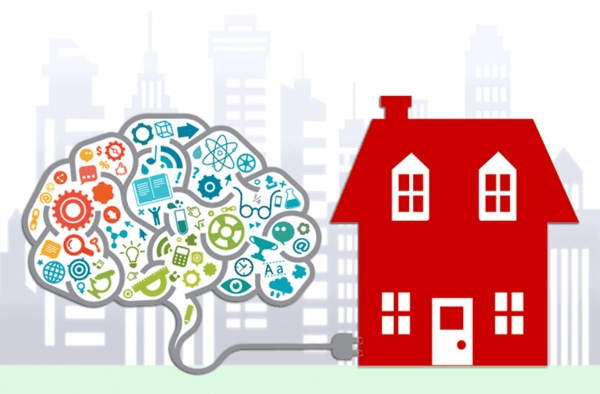Buying a home is one of the biggest financial obligations any of us will make in our lives, and even renting a home costs a large sum of money, so the decision of which property to choose is an important one. In our previous month’s blog post we explored our top tips for viewing a property to ensure you are gathering all the information you need. This month we explore how to utilise this knowledge into being confident you have found the house that will become your home, and the psychology behind the decision making process of finding that dream home.
A study done in 2010 1 suggested there are four factors involved in decision making when purchasing a property, these factors are- financial, physical, socio-economic and living environment.
Financial Factors- Purchase funds, loans and time of purchase.
To put it bluntly, is it worth it? As we all know the value of any property is negotiable. The majority of people’s first offer that they put in on a house will not be a full price offer. Any purchase must satisfy a buyer’s needs in order for a purchaser to feel positive about their decision. To do this, it is necessary for a purchase to fulfil, or exceed their expectations 2. In other words, the final price must make the buyer feel they are getting their money’s worth otherwise, they may regret their decision and just end up pulling out of the sale further down the line.
Physical Expectations - Location, size and age of property, community
Again, a purchaser’s expectations must be met. One of our top tips to view a property is to make a list of the non-negotiable factors that your new home needs to meet. These basic requirements represent our innate needs which affect our behaviour as we work to satisfy them 3. At a basic level shelter is one of our innate needs, however a property also acts a status symbol, that influences how we see ourselves, and how we perceive other’s opinions of us 4. A house that you don’t love, will lead to negativity, which as humans we try to avoid 5. Therefore, ticking all the boxes on your non-negotiables list should mean all your basic needs are being met, leading to a sense of positivity surrounding your decision.
Socio-economic Factors - Maintenance Costs, neighbourhood relations, security, sense of position in society, independence and self-satisfaction.
Initially logical factors such as price, location and resale value would be the things that most people would assume affect the decision on which home to buy, but it is surprising how things such as aesthetics and emotions affect our decision making as well. It is often said that there are two ways people make decisions. System 1 - a fast, gut-feeling, emotion-driven process, contrasting against System 2 - a slower, more analytical, and rational process 6. Socio-Economic factors of decision-making use both System 1 and System 2 ways of thinking. For example, the issue of security. People want to feel secure in their homes. We tend to deem a sense of safety based on emotion and experience. However, logically, security should really be based on data, such as crime-levels in the area. On paper a house could be situated in the safest neighbourhood in a 100-mile radius, but if someone does not feel safe in their home, they will ultimately not be pleased with their decision.
Living Environment - proximity and effectiveness of public transport, proximity to schools, shops and medical resources and employment opportunities
What makes decision making processes with a property purchase different to other consumer purchases is the long-term future effects that have to be taken into account 7. Our lives are constantly changing - our income, our health, our environment to name just a few. Due to this, there is a level of risk that comes with any property purchase. The things that are important to you at this point of time in your life may not be in ten years down the line. In other words, the value of any risk is not absolute, and at different points in our lives the payoff of any risk will fluctuate, for example, the importance of a good school close by at this point in your life, may be different in 5 years time. When faced with a decision of uncertain alternatives, in general humans will base their decisions on the most positive possible outcome, this is known as the theory of expected utility 8.
Taking all of this into account we have come up with 9 questions you need to ask yourself, in order to be satisfied with the decision you eventually make:
- Does the House meet all your non-negotiable factors?
- Can you see yourself living there?
- Can you build a future with this house?
- Do you feel like the property is yours?
- Can you afford it?
- Do you want to speak to your family and friends about it?
- Do you feel safe?
- Do you want to keep looking at other properties?
- What does your gut say?
We hope this has helped you decide on your dream home, but bear in mind, these days we have an enormous amount of choice in life. We make hundreds of choices every single day and are not even aware of the majority of them. Now look back on your day and do you have any real regrets about any of the choices you have made? Probably not? As humans we are more inclined to feel confident about choices, we feel positive about at the time. So, as long as you feel the choice is right - then it will be.








